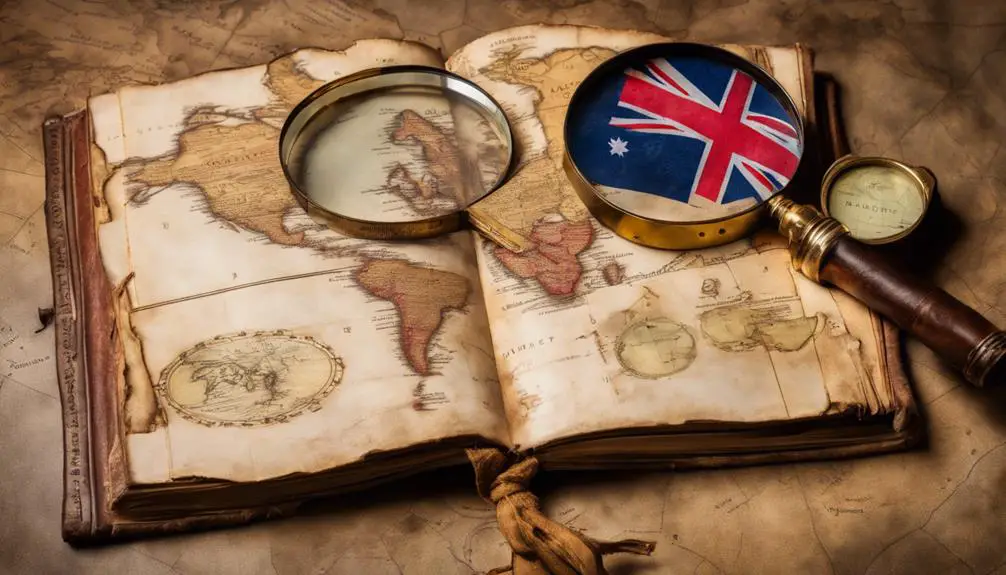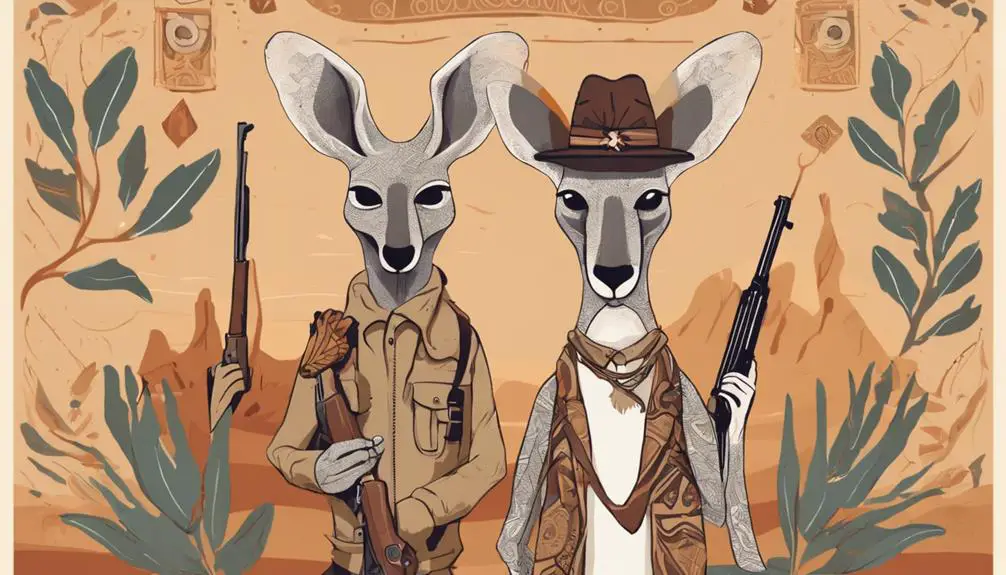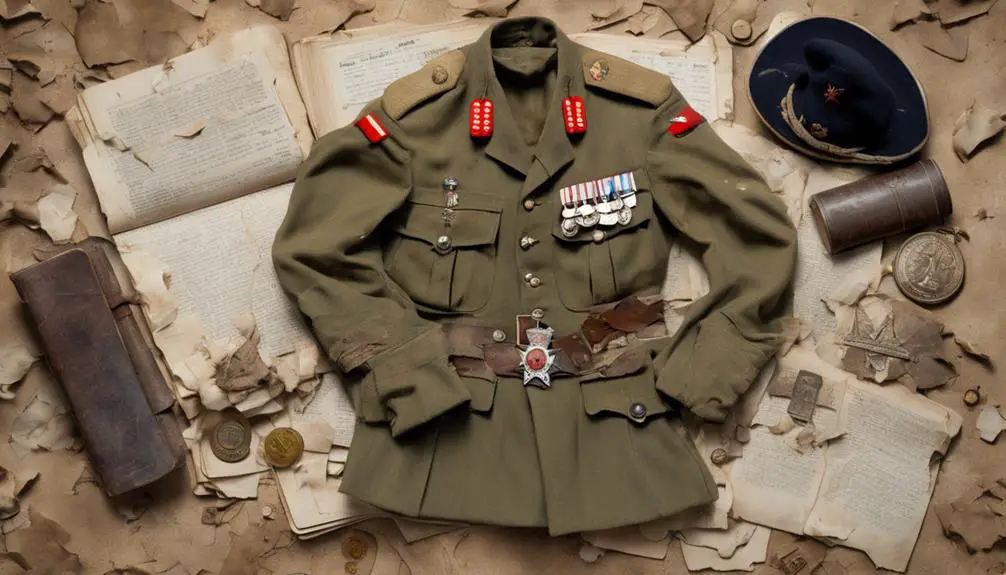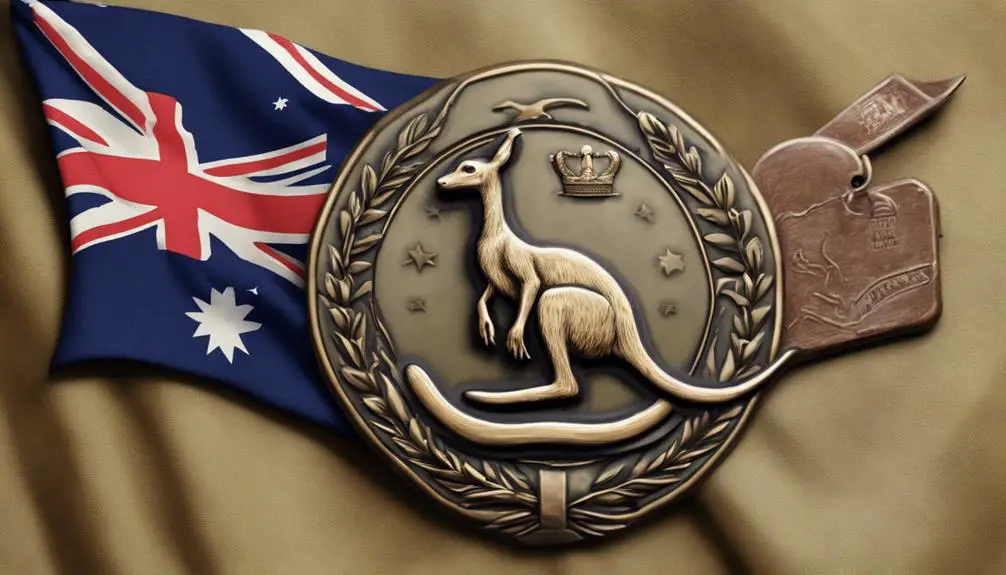You're interested in Australian English military slang, which has its roots in the Boer War and World War I. You'll notice British influences, as well as unique terms shaped by colonial past, indigenous culture, and isolation. In modern ranks, Aussie slang blends British and Australian expressions, fostering camaraderie and trust. You'll hear "fair dinkum" for authenticity, "g'day mate" for casual greetings, and "chuck a sickie" for calling in sick without being ill. Each service branch has its distinct slang, from the Army's rugged tone to the Navy's nautical jargon. There's more to uncover in this dynamic, ever-evolving dialect.
Origins of Aussie Military Lingo

You'll find that Australian military slang has its roots in the country's early military history, dating back to the Boer War and World War I, when Australian soldiers first started adopting colloquialisms and slang to cope with the harsh realities of war.
During this period, Australian soldiers were heavily influenced by their British counterparts, adopting many British military terms and phrases. This British influence is still evident in modern Australian military slang, with words like 'barrack' (meaning to cheer or support) and 'gobsmacked' (meaning shocked or surprised) being directly borrowed from British English.
Australia's colonial legacy also played a significant role in shaping the country's military slang. As a former British colony, Australia's early military was modeled after the British military, with many British military traditions and customs being adopted. This led to the adoption of British slang and colloquialisms, which were then adapted and modified to suit the Australian context.
Over time, these borrowed terms evolved to reflect the unique experiences and cultural identity of Australian soldiers, resulting in a distinct brand of military slang that's quintessentially Australian.
Slang in the Ranks Today
Today, Australian military slang continues to flourish in the ranks, with modern soldiers employing a unique blend of inherited British colloquialisms and distinctly Australian expressions to navigate the complexities of military life.
As you explore further into the world of Aussie military slang, you'll notice that it's not just a matter of using colloquialisms to sound cool – it's an essential tool for building camaraderie, establishing trust, and facilitating communication in high-pressure situations.
The cultural impact of Australian military slang is undeniable. It's a reflection of the country's rich cultural heritage, with influences from British, Indigenous, and multicultural traditions. You'll hear soldiers using slang to poke fun at each other, to diffuse tension, or to express emotions in a way that's both humorous and relatable.
Additionally, technological influence has also played a significant role in shaping modern military slang. With the rise of digital communication, soldiers are now more connected than ever, and new slang terms are emerging as a result of online interactions and social media platforms.
As you explore the world of Australian military slang, you'll discover that it's a dynamic, ever-evolving language that's deeply ingrained in the country's military culture.
Unique Terms and Phrases

Australian military slang is replete with unique terms and phrases that have been unearthed from the country's distinct cultural heritage and historical influences. As you explore the world of Australian military slang, you'll uncover a rich tapestry of words and expressions that reflect the country's complex cultural significance and historical context.
Some examples of these unique terms and phrases include:
- Fair dinkum: an expression used to emphasize the truth or authenticity of something
- G'day mate: a casual greeting used to acknowledge someone
- Chuck a sickie: to call in sick to work without actually being ill
- Barbie: a barbecue, often used for social gatherings and outdoor events
These terms and phrases have evolved over time, influenced by Australia's colonial past, its indigenous culture, and its geographic isolation. As you explore the world of Australian military slang, you'll gain a deeper understanding of the country's cultural significance and historical context.
Slang Across the Services
As you explore the nuances of Australian military slang, you'll find that each service branch has its own distinct flavor of slang, shaped by its unique culture and operational requirements. This diversity is reflective of the inter-service rivalries that exist between the Army, Navy, and Air Force. For instance, the Army has a more rugged, no-nonsense tone, while the Navy's slang is often infused with nautical terminology. The Air Force, on the other hand, has a more technical, precision-oriented dialect.
| Service Branch | Slang Characteristics | Examples |
|---|---|---|
| Army | Rugged, practical | 'Digger' (soldier), 'chog' (food) |
| Navy | Nautical, technical | 'Salty' (experienced sailor), 'scran' (food) |
| Air Force | Technical, precise | 'Boggo' (bomb), 'squawk' (radio transmission) |
Cross-training and joint operations have led to the development of hybrid dialects, where personnel from different branches adopt and adapt each other's slang. This blending of languages has enriched the overall Australian military slang, making it a unique and fascinating aspect of military culture. As you explore further into the world of Australian military slang, you'll discover the complex dynamics and nuances that shape the language of each service branch.
Evolution of Military Jargon

Through a dynamic interplay of technological advancements, operational adaptations, and cultural influences, military jargon in Australia has undergone significant transformations over the years, reflecting the nation's shifting defense priorities and the evolving nature of modern warfare.
As you delve into the evolution of military jargon, you'll discover that various influence factors have contributed to its development.
- Historical Context: The influence of British and American military traditions on Australian military slang can't be overstated. Many terms have been adopted and adapted from these countries, reflecting the historical context of Australia's military alliances and partnerships.
- Operational Adaptations: Changes in military operations, such as the shift from conventional warfare to counter-insurgency and peacekeeping, have led to the development of new terminology.
- Technological Advancements: The integration of new technologies has introduced new terms and jargon, such as 'cyber warfare' and 'network-centric warfare'.
- Cultural Influences: The increasing diversity of the Australian Defence Force has brought about the incorporation of slang and colloquialisms from various cultural backgrounds.
Frequently Asked Questions
Is Australian Military Slang Used in Other English-Speaking Countries?
You might wonder if military slang from one country is adopted by others.
In reality, cross-cultural exchange and international influence play a significant role in shaping military slang globally.
While some terms may not translate, many are borrowed and adapted through international collaborations, joint operations, and military exchanges.
As you explore this phenomenon, you'll find that military slang often reflects a blend of cultural and linguistic influences, with countries learning from each other and adopting terminology that suits their needs.
How Do Military Slang Terms Get Officially Recognized?
As you explore the world of military slang, you're probably wondering how terms get officially recognized.
First, linguistic regulation plays a vital role in standardizing terminology. To gain official sanction, terms must be widely used and accepted within the military community.
Then, they're documented in official publications, such as dictionaries or glossaries, which provides a stamp of approval.
This process guarantees consistency and clarity in military communication, allowing troops to operate efficiently.
Can Australian Military Slang Be Used in Civilian Life?
As you navigate the shift from military to civilian life, you might wonder if military slang can still be part of your everyday conversations.
The answer lies in cultural integration. While some terms mightn't translate, others can enrich your language.
Be mindful of your audience, and you'll find that certain phrases can add flavor to your speech, facilitating connections and fostering a sense of community.
Are There Any Australian Military Slang Terms in Other Languages?
You might wonder if military slang terms have equivalents in other languages. Surprisingly, yes, they do.
French translations of military terms exist, such as 'poilu' for a French soldier, similar to 'digger' for an Australian soldier.
Additionally, Indigenous adaptations of military slang have been observed in languages like Yolngu Matha, spoken in North East Arnhem Land.
These examples highlight the universality of military slang, transcending language and cultural boundaries.
Is Australian Military Slang Used in Popular Culture, Such as Movies?
You're about to explore the world of military slang in popular culture, and it's like cracking open a treasure chest of linguistic riches.
When it comes to film portrayals and TV representations of military life, you'll often find a dash of military slang sprinkled throughout the dialogue. Think of it as a pinch of authenticity added to the script.
From Hollywood blockbusters to Aussie TV dramas, military slang is used to create a sense of realism, making the characters' interactions feel more genuine and immersive.
Conclusion
As you immerse yourself in the world of Australian military slang, it's like uncovering a treasure chest of hidden gems. You've explored the origins, modern usage, and unique terms that define this linguistic landscape.
Just as a puzzle comes together, the evolution of military jargon reveals a rich tapestry of history, culture, and camaraderie.
As you close this chapter, remember that the language of war is a living, breathing entity, adapting to the rhythms of time, and echoing the heartbeat of those who serve.







